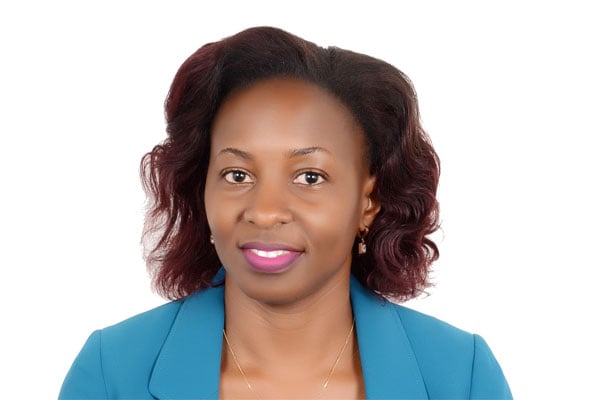Politics should take care of economics, human capital

Author: Sophie N Njuba. PHOTO/FILE.
What you need to know:
- Ms Sophie Njuba says: While experiencing an ongoing pandemic, shutting down the Internet was not a wise move.
As Ugandans prepared to head to the polls to vote their presidential and Parliament leaders on January 14, the government had different plans for them. With tensions high on how the elections would go, the Uganda Communications Commission (UCC), working with the Ministry of Information and Communication Technology, shut down Internet connection in the country on January 13. For the first time in a digital economy, the country was without Internet connectivity for five days, even with Access to Information Act in place.
Politically, the objective was achieved as Internet communication channels to exchange information, especially on social media platforms like Facebook and Twitter were largely cut off and, to a large extent political mobilisation limited with the aim of curbing spread of propaganda.
However, for other areas, especially from the economic front, and the global village, the Internet shutdown has been known to cause major business and investment losses for the country, picking from the 2019 experience where an article by CNBC estimated the shutdown to cost up to $8b. Politics worked in isolation of its siblings like the economy and human capital on this decision with no thought of the effects.
In 2020, Covid-19 transformed many businesses from the analog to the digital mode, especially for business and investments. Transactions increasingly operated digitally with an increased use of visa operations, mobile transactions, online operations like Internet banking, digital marketing and transactions through applications like Jumia and Safe Boda. These services and more increasingly worked online from the contact of producers in other countries, to the purchase of items online and being able to track their movement and delivery. Person-to-person contact reduced and digital operations increased, which was a health advantage regarding mitigation of Covid-19 spread. All this, however, came to a halt on January 13.
An Internet shutdown of more than 21.6 million Internet users in Uganda’s economy as indicated by the Uganda Bureau of Statistics in 2018 not only slows down business operations, but also guarantees losses in the economy. Businesses such as Mobile Money transactions with more than 24.5 million users, Safe Boda, Jumia, Internet Banking, and visa operations, among others, registered losses in the five days of the shutdown, whose extent we are yet to realise. Systems that operate online slowed down, including government operating systems such as the Integrated Finance Management information System, the variety of systems operated by the Uganda Revenue Authority (URA) and banking operations, lowering productivity.
Economic and investment operations were gravely affected with companies like commercial banks, Airtel and MTN telecommunications operators reporting disruptions in some of their service operations as a warning was not provided prior to the shutdown. The global economy was cut off with business persons unable to contact their suppliers, suffocating the global village initiative. Critical sectors like health that adopted the telemedicine were unable to operate. Investors interested in the country due to its operating environment could think twice as the Internet shutdown poses a major threat for virtual operations especially.
The shutdown not only affects the direct businesses but also the economy at large. For a country with a recurrent budget of Shs18,104.35b in FY 2020/2021, expected to increase to Shs18,840.35b in FY 2021/2022 as indicated in the National Budget Framework Paper for FY 2021/2022, while experiencing an ongoing pandemic, shutting down the Internet was not a wise move.
This is especially so since Members of Parliament citizens were electing into office need up to Shs602.09b to run their operations in FY 2021/2022, catering for the basic recurrent budget like fuel, wages, allowances for MPs, among others. The political fraternity needs a vibrant economy and quality human capital to operate smoothly and generate revenue in form of taxes, fees, among others that fund the national planned activities for development.
It is not good for the political fraternity to suffocate the other siblings majorly economics and human capital since these support their smooth operation. Given the cost implications, Uganda cannot afford to make drastic changes that lead to revenue losses from circumstances that can be controlled like the shutdown of the Internet. Consultations need to be undertaken with the different parties before such a decision is made.
Ms Njuba is a budget policy specialist with the Civil Society Budget Advocacy Group




